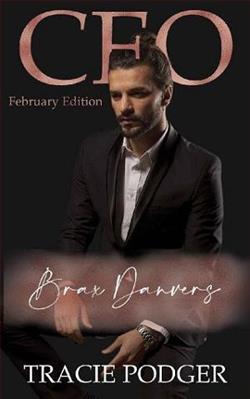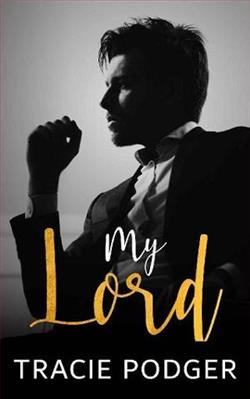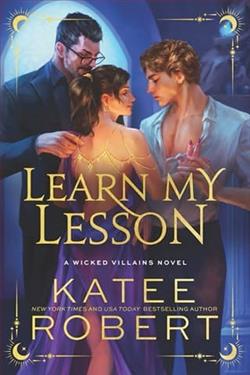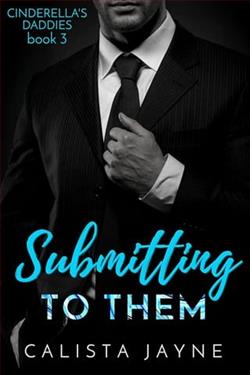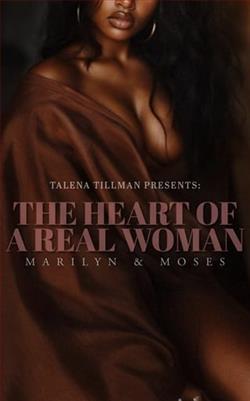Page 74 of Badlands
The group that circled Edison’s skinned body was much larger now—perhaps a dozen. Most appeared to be women, naked and smeared with red clay as well and wearing the same masks. As they circled the tripod, their movements were herky-jerky, as if under the influence of drugs—which, he thought, was probably true.
Skip managed to sit up, fear churning his stomach.My God. Despite the roughness with which he and Nash had already been handled, the brutality and sadism of this act shocked him to thecore.Why is this happening? Am I going to be next? What did Edison do to deserve being flayed alive?Earlier, his handler had called him a thief, a desecrator—but of what? Were they being punished for violating some sacred place, or picking up artifacts?
It was Edison’s idea to keep this little excursion a secret. They’d told no one where they were going. No one knew where they were. No one would come looking for them here. Besides, Nora was away in Mexico—she’d promised him she would be back in just a few days, but there was no way of knowing how long she would be gone.
Another thought occurred to him: they were not going to let him live after this. He was a dead man, for sure.God, poor Edison…With an effort, Skip tried to force away the memory of those prolonged, soul-wrenching screams.
The group stopped dancing, stirring with excitement. Two women appeared at the edge of the mesa, carrying a litter made of two poles on their shoulders, a platform of wooden planks in between. Coming up behind was a tall, muscular figure painted in white clay, with handprints of black paint imprinted all over his body. Instead of a bundle of tied grass, a pair of deer antlers rose above his head—clearly a person of authority.
Skip stayed silent, looking at them with curiosity and terror. A person sat on the platform, cross-legged, swathed despite the heat in a woven Pueblo-style poncho blanket with a drooping hood.
The crowd fell into a hushed silence and parted to let the litter pass through and approach the pole. This, Skip thought, must be the big boss, the man—the one that even the figure in white drawing up the rear would answer to.
The bearers circled the pole, obviously to give the hoodedperson on the litter a good view of Edison’s mutilated corpse. Then the litter was borne back out of the circle and set upon a large, flat boulder nearby. The bearers flanked the litter in ritual fashion as the figure in white stepped forward, reverently took up the corners of the blanket and, after a brief chant, whisked it off.
44
THEBASTIEN HOMEwas in Las Campanas, a fancy golf development outside Santa Fe. As they pulled into the driveway, Nora took it all in: the sleek adobe-and-stone house in contemporary Santa Fe style, the four-car garage, the infinity pool, the tennis court, the sweeping views.
“Not bad,” said Corrie as she parked the car.
They got out. As they came up the flagstone walkway, the door opened, revealing a young blonde woman dressed for riding in breaches, leather boots, a silk shirt, and a vest. In one hand she was carrying a crop and helmet. Before they could introduce themselves, she turned and called back into the house: “Randolph, the FBI are here.”
She stepped aside to let them in without introducing herself. A moment later, the man named Randolph arrived, much older, heavyset, with a neatly curated salt-and-pepper beard.
“I’m going riding,” the woman said from the door. “I’ll leave you to entertain these people.”
“Yes, darling,” he said, turning and gesturing Nora and Corrie inside.
The woman turned and skipped down the walkway, leaving behind a cloud of expensive perfume.
Nora had initially assumed the woman must be Bastien’s sister, but the exchange made it clear she was the wife—of the trophy kind, apparently.
Corrie wasted no time showing her badge. “Special Agent Corinne Swanson,” she said, “and FBI consultant Dr. Nora Kelly, here to interview Elodie Bastien.”
“Right, right. Have a seat,” said the man, leading them into a vast white living room. “She’s still not talking.”
“And you are Mr. Bastien?” asked Corrie.
“Randolph Bastien, Elodie’s father,” he said, not offering his hand.
“Could we ask you a few questions, Mr. Bastien, before we see her?”
“Go ahead.”
They settled into several ultra-contemporary, ultra-uncomfortable chairs. Corrie took out a phone. “Mind if I record?”
“Go ahead,” said Bastien.
As Corrie set the phone down, microphone pointed at him, Nora took the opportunity to examine the elder Bastien more closely. He wore a blue blazer with gold buttons, white slacks, black loafers with horse-bit buckles, and a burgundy ascot plumped up around his neck. His hair was brushed back and his face was fleshy, the cheeks ruddy and varicose.
“And that,” asked Corrie, “was Mrs. Bastien, I assume?”
“Yes,” he said.
“Elodie’s mother is… where?”
“Denver. Divorced. Why is this your business?”









